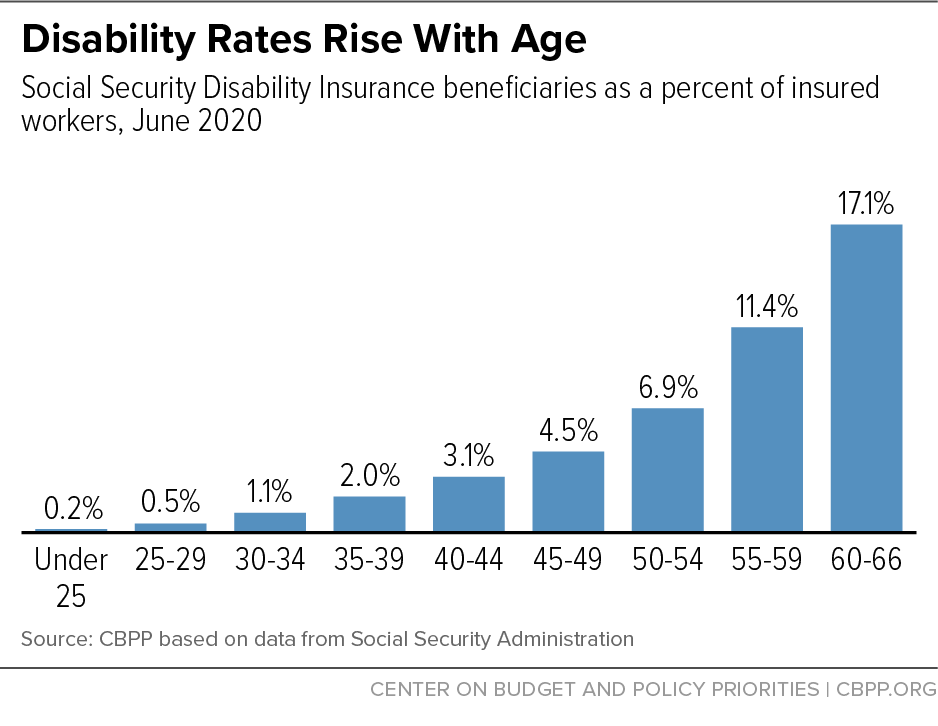
SSDI approval rate by age is a common search query for those applying for disability benefits. As you age, the standard for receiving disability benefits becomes easier to meet. Often, this results in older claimants having higher SSDI benefit approval rates than younger claimants. Additionally, older claimants are more likely to live with a chronic or disabling medical condition than younger adults.
SSDI Approval Rate By Age
According to the Center on Budget and Policy Priorities, the risk of disability rises with age. People are twice as likely to collect SSDI at age 50 as at 40 — and twice as likely at age 60 as at 50.

The Social Security Administration (SSA) considers various factors when determining disability. First they examine the severity of the individual’s medical impairments. Then, they determine if those medical impairments prevent the individual from working at substantial levels. Next, they consider whether the individual can adapt to easier work. This is the part of the process when SSA evaluates how an individual’s age impacts their ability to adjust to new work.
SSDI Age Grid
The Code of Federal Regulations contains Medical-Vocational guidelines the SSA follows to determine disability. This Code contains references to “younger individuals, individuals approaching advanced age and individuals of advanced age.”
| SSA Age Category Term | Age Range |
| Younger Individuals | 18 to 49 |
| Individuals Approaching Advanced Age | 50 to 54 |
| Individuals of Advanced Age | 55+ |
As individuals age, SSA assumes their work skills, education and ability to adapt to other forms of sedentary work lessens. As such, an older person’s standard for meeting the definition of disability is lower than a younger person’s whose relevant experience and education may help them adjust to sedentary work. While the chart shows the primary categories, SSA also follows age-advantaged stair-step rules beginning at age 45.
This doesn’t mean that claimants older than 50 are the only claimants who should apply for Social Security Disability benefits. But it does mean, if you’re younger than 45, your medical impairments must prevent you from adjusting to work of any kind to qualify for disability benefits. And, you’ll need detailed medical evidence with supportive treating providers to strengthen your claim.
On the other hand, individuals older than 50 who have been struggling to work or adjust to new work due to their medical impairments may consider filing an application for disability benefits due to their age advantage. With strong medical evidence and a more favorable age band, older individuals may have a successful claim.
In conclusion, unlike SSDI approval rates by condition which vary greatly based upon the severity of an impairment, approval rates do increase as individuals age.
Disability Lawyers in Greensboro, NC
This content was provided by Collins Price, PLLC. If you are applying for or appealing a denied disability claim, contact our disability lawyers in Greensboro, NC today for a free consultation. There is no obligation to hire our firm and no fee for our services unless you win your claim.



